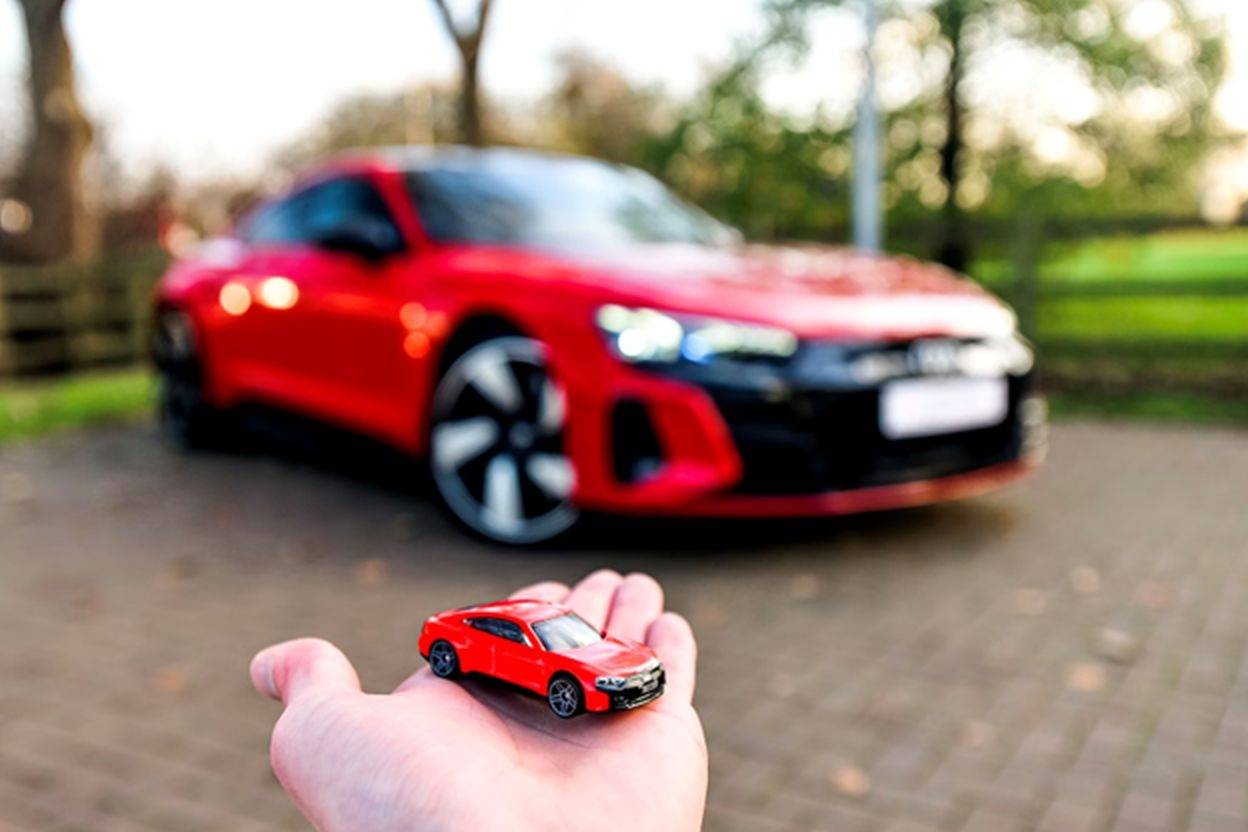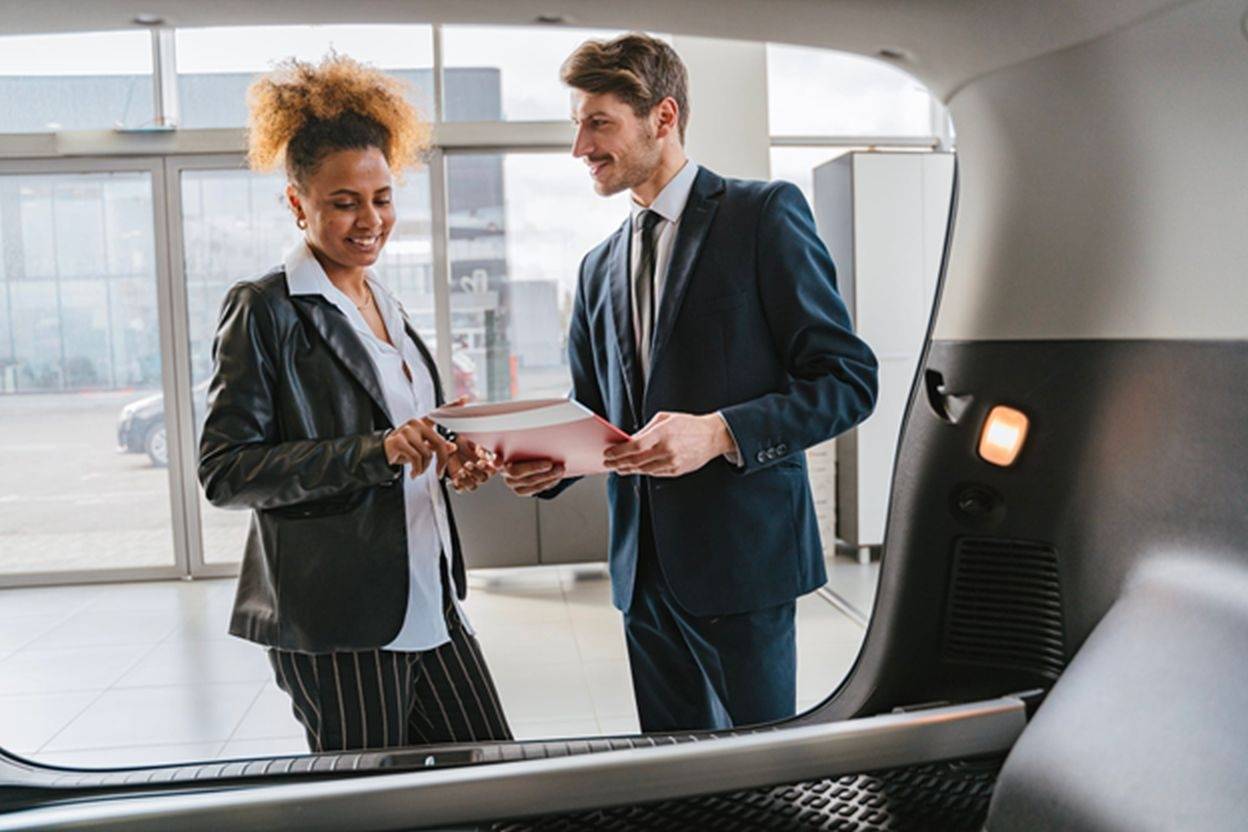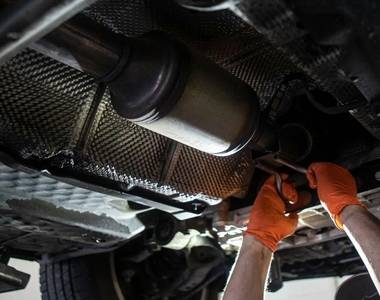Cars are massive investments. It's safe to say a lot of us don't have thousands of pounds laying around for one. That's why lenders make it so easy to finance cars by offering payment plans. But what if you don't want to take on any debt? What if you'd rather pay in cash?

Discover the ins and outs of buying a car with cash in the UK. Explore its benefits, tax implications, and factors to consider for a savvy purchase.
How to Buy a Car With Cash: Best Guide for 2023

(Source)
From October 2020 to September 2022, businesses and individual consumers collectively purchased over 2 million cars on finance. In 2022 alone, finance borrowing exceeded £40 billion.
Despite the market penetration from EVs — and government incentives making EV adoption easier — finance borrowing grows every year. The skyrocketing price of second-hand cars (which make up a huge portion of the market) is one of the factors driving this trend.
A car in the UK costs between £12,000 and £28,000 on average. Two-thirds of UK residents say it's their largest expenditure besides their rent/mortgage. And more than one in every three Brits lives paycheck to paycheck.
Financing serves a clear purpose: to make car ownership more accessible. But loans come with strings attached. They aren't just 'free money'.
Most car loans hover somewhere between 6% and 12%. For Brits without credit history, it could be as high as 20% APR.
To put things into perspective, here's a quick example:
Suppose you purchase a new £15,000 vehicle and put £3,000 down at 8% APR. You're taking out a 60-month loan for the vehicle.
Interest rates compound monthly, so you'd pay around 0.67% interest each month. Your payment would be roughly £243.65.
Over the course of five years, you'd spend £14,619 on your vehicle instead of £12,000 had you paid upfront.
This is just a basic illustration — many UK motorists spend much more on interest payments.
It's cheaper in the long run to buy a car with cash. You'll save on interest payments and avoid credit checks.
Except for some cases, financing is usually the better option. If you're someone who wants to buy your car outright, however, we're here to show you how.

(Source)
Financing a vehicle is the 'natural' way to buy a car. Most UK drivers finance their vehicles (even wealthy ones) because the benefits of keeping liquid cash in the bank often outweigh the interest costs.
Although it's less common, you certainly can buy a car with cash. It's faster, easier, cost-effective and hassle-free.
But it comes with its own set of challenges:
- How much cash do you need up front?
- Where can you find the best deals?
- What paperwork do you need to complete?
- Are there any hidden costs or taxes?
Let's take a look at the pros and cons of buying a car with cash.
Advantages of paying cash for a car
- Buying in cash might be the only way to pay. If someone is selling a car privately, the transaction is always carried out in cash. There's way too much risk involved in an individual seller offering someone a 'payment plan'. The same goes for those who are not creditworthy, though people with tens of thousands in the bank and no ability to get a loan are extremely rare.
- You won't have to pay interest. Since you aren't taking out a loan, you're paying thousands of pounds less over the long term. You also won't have to pay any service fees to the lender.
- It's easier to get a good deal on the car. When a buyer puts down cash, it's less of a risk for the seller, so they might be willing to negotiate. If you're not looking to spend too much money, buying with cash can give you greater bargaining power.
- You can sell it whenever you want. You can't sell a financed car in the UK. You must settle your debt with the lending institution beforehand. You can sell your car anytime if you already own the vehicle and have no outstanding loan balance. If you're moving, travelling, need quick cash because you lost your job or simply realise your interests have changed, you have ultimate freedom.
- No contracts. This is the most serious benefit. Especially in the case of Personal Contract Purchases (PCPs), drivers find themselves locked in for years. When it's paid off, they're instantly roped into another. Buying a car in cash eliminates this issue.
Disadvantages of paying cash for a car
- It's difficult to afford a car outright. This is the obvious downside — some of us don't have £15,000 or more in our bank accounts. You can only circumvent this by saving up until you can pay for it.
- You won't build any credit. Financing a vehicle builds your credit score and creditworthiness. So if you don't have other credit accounts (e.g., mortgage, credit cards, business loans), buying a car with cash won't help your situation.
- You can't take advantage of incentives or discounts. When you finance a car, manufacturers usually offer 0% APR for set periods of time. If you have excellent credit, you can even get cash back — again, something that's not available to cash buyers.
- Potential overspending prevents you from using the money in other ways. It's better to have liquid assets, especially when you're thinking long-term. When you buy a car with cash, you take away from your financial security and flexibility. Most of the time, it also puts a huge dent in your bank account.
- Depreciation. You'll clearly struggle with depreciation regardless of whether you finance or pay in cash. The only difference is that with financing, you can potentially renegotiate rates further down the line to account for it.
- You can't buy as nice of a car. One of the biggest arguments in favour of financing or leasing a vehicle is spreading payments out and opens doors up to more luxurious models. A luxury vehicle that costs £50,000 isn't affordable to most, but plenty can afford a £900 payment.
What are my other options when paying for a car?

(Source)
If you're on the fence about paying cash for your car, it's good to know you have other options. In fact, most people use another option.
Cash vs. Finance
Financing a car is by far the most popular way to purchase a vehicle. It's simple, convenient and you don't have to worry about coming up with large amounts of money upfront.
Compared to paying cash, benefits of financing a vehicle include:
- Not needing to pay the full amount upfront
- Having more liquid cash in the bank
- The ability to own a nicer car
- Building your credit score
- Spreading the cost over a longer period
You're giving up some of your freedom, yes. And a lot can happen in 4 to 6 years. But financing is generally seen as the most practical choice when buying a car.
Cash vs. Lease
Leasing a car isn't as popular in the UK, but it also provides some advantages.
The main benefit to leasing a car is you pay for what you use. Leasing means you don't own the vehicle — and you never will unless you exercise your purchase option at the end of the term (if the lessor offers one, that is).
You may have higher monthly payments than with financing, but lower upfront costs. It's also easier for businesses to expense leased cars, so company cars are often leased nowadays.
The biggest drawbacks to leasing a car are all tied to the fact you don't own the vehicle. You'll have mileage limits set by the leasing company and won't be able to customise the car.
Lack of ownership also means you'll need to fix the car immediately if something happens to it. Returning a leased car with scuffs, dents and scratches can result in quite expensive repair costs when the term is up.
Is it suspicious to buy a car with cash in the UK?
It is by no means suspicious to buy a car with cash in the UK. Thousands of cars change hands every year on the private market, where cash is the only possible payment option. It's also common when selling a car online.
There are, however, car selling scams that take advantage of people’s trust. Before paying or accepting cash, it's important to check the car's title and history to make sure it's legitimate.
If you're buying from a dealership, always ask for copies of all paperwork before handing over money, including warranties and service records.
It's also worth noting that paying in physical cash might be alarming (depending on the size of your purchase). Physical cash payments are a lot less common than digital ones, so buying a £100,000 luxury car purely with £50 notes will probably raise some eyebrows.
In any case, the act of buying with cash itself isn't a suspicious activity – it's just important to use common sense and exercise due diligence.
Tax implications of buying a car with cash
You will still have to pay Vehicle Excise Duty (VED) or the 'road tax' for a car you've purchased with cash. It's an annual fee that applies to all vehicles used on UK roads and is based on either the engine size or fuel type of your car.
If you are buying from a dealer, they can collect the VED and payout for you when you pick up your car. It's also possible to pay online using your credit or debit card with 16 digits.
Other than that, the only tax implications apply to business owners. Since vehicles aren't subject to Capital Gains Tax in the UK, it doesn't necessarily matter how you buy it. For businesses, any cash earnings in excess of the purchase price are taxable.
It's also much more complicated to account for major cash purchases like company cars, which is why most organisations choose to lease or finance them.
Is it sensible to buy a car with cash?
If, after weighing the pros and cons, you've decided buying a car with cash is the best route for you, it's completely sensible to do so!
The main benefit of paying cash for your car is you don't have to worry about making payments or losing control of the car. Cash sometimes allows you to get a better deal as well, since sellers are more likely to accept lower prices when they don't need to handle the financing paperwork.
Some car dealerships don't have much infrastructure for financing vehicles, either. It isn't uncommon for a dealer to encourage its customers to use cash instead of a financing option.
That said, paying in instalments with a finance plan or lease gives you more flexibility and can be a good way to manage your budget. It's important to think holistically about the purchase decision when considering cash purchases.
Wrapping up
The bottom line? Whether buying a car with cash is sensible for you depends on your personal circumstances. Be sure to take into account factors like affordability, lifestyle needs and tax regulations before making a decision.
It's also important to keep the legitimacy of your purchase in mind. Researching the car you're buying and its history is always a good idea, no matter how you choose to pay for it.
With all that information in hand, you can make an informed choice about whether or not paying cash for your car is right for your financial situation.
Want to learn more? These are the questions our readers ask us the most.
Can you buy a car with physical currency?
You definitely can buy a car with physical currency. It will, however, raise some eyebrows if you make a large enough purchase. Since physical cash is difficult to trace, your attempt to shell out tens of thousands of pounds in front of them might raise a few red flags.
Usually, dealers will ask their buyers to pay by cheque or card while only accepting cash payments for smaller purchases (e.g., <£5,000).
Do dealers accept payment with cash?
Most dealers do indeed accept cash for car purchases. If you do decide to pay with physical currency, the dealer might have a policy about how much you can spend this way. If you plan to make a large cash purchase, it's best to call your dealer ahead of time and arrange the sale ahead of time (and get their approval).










